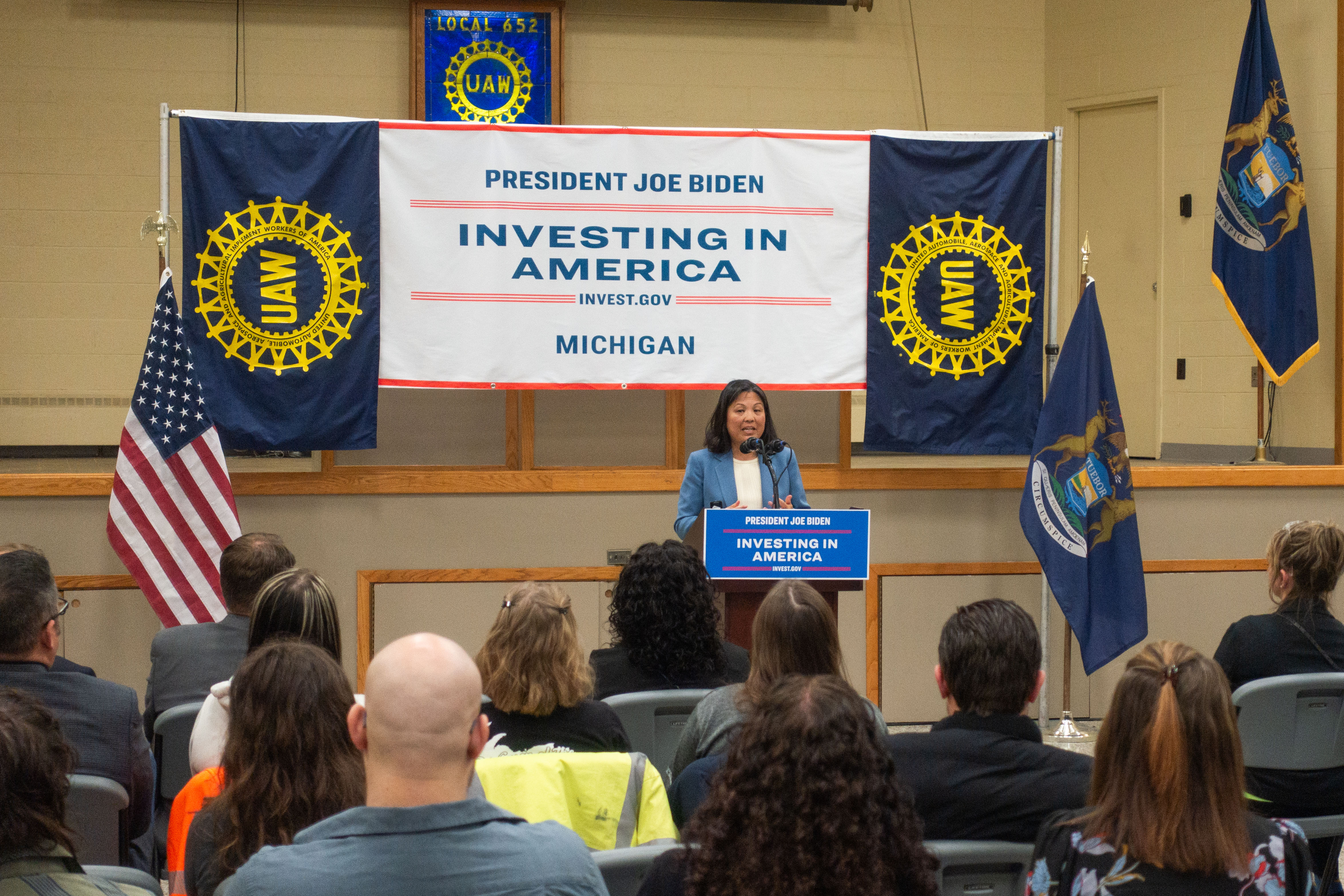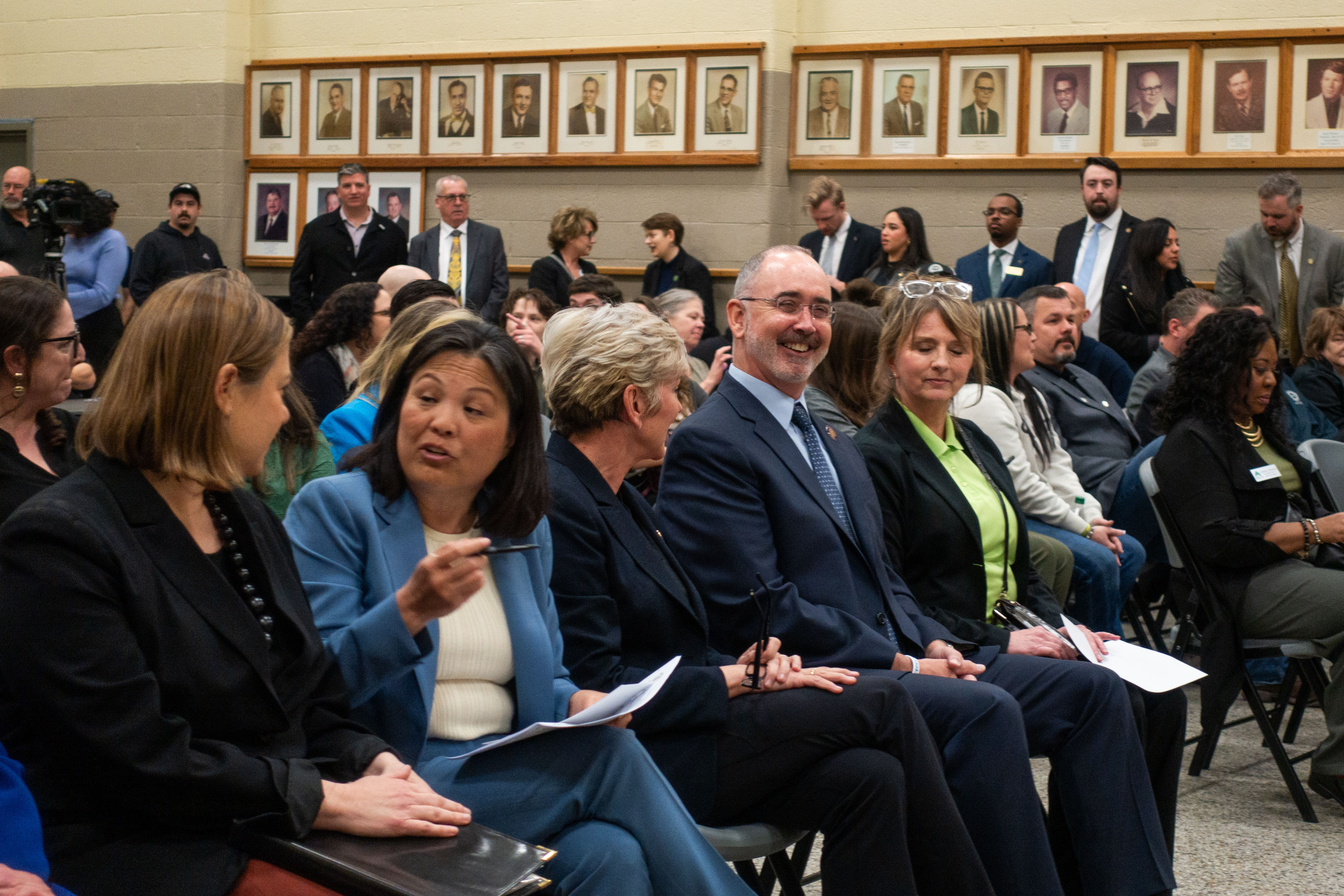LANSING — Energy Secretary and former governor of Michigan Jennifer Granholm spoke in Lansing Tuesday to highlight federal investments in Michigan manufacturing and the Battery Workforce Initiative, a program to help transition workers to jobs in electric vehicle manufacturing.
Granholm spoke with United Auto Workers president Shawn Fain and Acting Labor Secretary Julie Su, who say that programs like these are essential for supporting the American workforce in the transition to a greener economy.
“When you combine the president’s Invest in America agenda, with the incentives that I know you have put together for Michigan, it makes Michigan an irresistible state to grow and invest in and grow good paying jobs in.”
The Battery Workforce Initiative is a federal effort to develop standards for those entering the electric vehicle industry to ensure a smooth shift from previous professions. Su said that programs like these help support workers in various aspects of their lives.
“While we build this future workforce, while we build and grow this industry, it is going to be done by workers who are living a decent life, who have new opportunity, who have a shot at a union, and who are really having a voice on the job and voice the future of their industry,” she said.
Already, companies have proposed or committed around $18 billion in manufacturing investments throughout the state. The electric vehicle industry is projected to grow in the coming years as more factories begin production and buyers take advantage of tax incentives.
Concerns over pollution from gas cars have led to some states proposing or implementing future restrictions on the sale of new gas cars.
According to the E.P.A., transportation makes up 28% of US greenhouse gas emissions, the largest of any single sector.
Lawmakers in Michigan have yet to implement any such restrictions, but Gov. Gretchen Whitmer’s climate plans see the state going carbon neutral by 2050.
Electric vehicles have also become a political flashpoint as lawmakers and voters have raised concerns about reliance on foreign companies.
China currently dominates the electric vehicle market through exports, and efforts from Chinese companies to bring manufacturing resources to the US have been met with pushback from local governments and opposition from conservative lawmakers.
Congresswoman Elissa Slotkin, the likely Democratic nominee for this year’s US Senate race, says that wider adoption of electric vehicles will provide opportunities to expand US manufacturing and support workers entering the industry.
“We’re not going to sit on our laurels and wait for China to eat our lunch on electric vehicles,” she said. “We’re going to do it here. We’re going to make it here, even if it’s new, even if it’s different, and we’re going to train our workforce so that we can get the jobs of the future and our kids can have a better life than us. That’s all we’re asking.”




